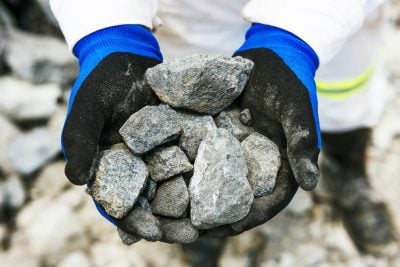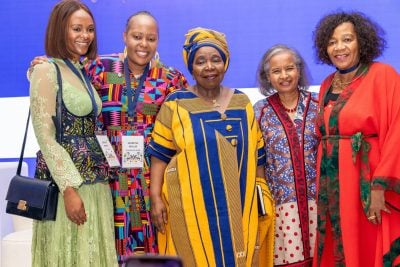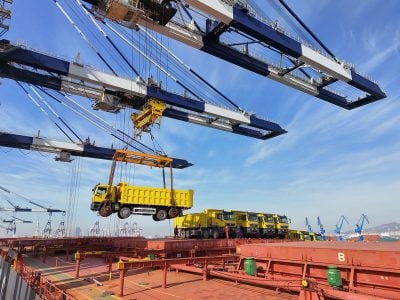On 23rd August, João Lourenço led the People’s Movement for the Liberation of Angola (MPLA) to victory in Angola’s legislative elections, thereby winning the presidency for himself.
The 38-year rule of José Eduardo dos Santos was over. Notwithstanding a moment to appreciate the significance of a peaceful transition of power from Africa’s second longest-serving President, the question on every analysts mind is currently just how real this transition will be?
Although dos Santos takes his leave, the ageing leader made sure to entrench his power base before departing, and Lourenço inherits an office and a body politic that has been completely crafted in dos Santos’s image. That said, chinks in the ex-president’s armour are starting to appear, and whether or not Lourenço will exercise power freely depends on dos Santos’s popularity within the MPLA and the party’s popularity within Angola.
Exit strategies
Having considered stepping down before, Dos Santos was well prepared to lay exit strategies which would grant him immunity from prosecution and a continued hold on power.
The MPLA are passing a bill to grant President Emeritus status to Dos Santos, meaning; a pension compromising 90 per cent of his current salary – 5,600 euros a month; a chauffer driven car; first class travel, and; a special legal status granting him immunity from prosecution for any abuse of office.
On top of that, Dos Santos will remain the President of the MPLA and hence will continue to choose candidates for parliament and appoint top posts in the army and police. Weeks before stepping down he pushed a law through parliament blocking Lourenço from appointing any new chiefs of military, police and intelligence services for eight years, and, instead, promoted 165 senior police officers of his own choice to key security positions.
In this manner, Lourenço is being thoroughly checked and balanced – even his Vice-President Bornito de Sousa is known to have a good relationship with Dos Santos and will undoubtedly be keeping his interests at play in the new administration. Finally, Dos Santos has infamously spread his power base by appointing members of his family to high-level business positions in the country.
His daughter Isabel dos Santos is chairman of the state oil firm, Sonagol, and his son José Filomeno dos Santos is the chairman of the country’s sovereign wealth fund.
Checked and balanced
While it is clear that Dos Santos has done his best to remain in control, signs are emerging that the political elite grow tired of their former President, and in a country not unaccustomed to rancorous in-fighting – the balance remains delicate.
Lourenço is not – and has not- been a member of Dos Santos’s inner circle. In fact there is reason to believe – despite election posters showing a united MPLA front – that Lourenço and Dos Santos are not bedfellows.
In 2001 an ambitious secretary-general, Lourenço, vocalised his interest for presidency as Dos Santos toyed with the idea of retiring, and, when Dos Santos changed his mind, Lourenço was seen as a threat and demoted to the sidelines for the next decade. From there he kept his head down and slowly rose in prominence to become defence minister in 2014 – a move that precluded his presidency.
Yet little is known about what kind of man Lourenço is and how he will express his presidency. Zenaida Machado, Angola and Mozambique researcher at Human Rights Watch says: “We don’t know much about him. As Dos Santos remains party leader, we are yet to see whether he [Dos Santos] will be able to implement governance of his own.”
Dr Claudia Gastrow, anthropology lecturer at the University of Cape Town, argues that while a power struggle is not imminently on the horizon, its emergence is inevitable. “My guess is that we’re going to have to wait eighteen months to two years to tell what is going on. I would be very surprised if there were any moves to be antagonistic before then, but I think we are going to see a standoff at some point.”
The split, she suspects, will materialise as a struggle between control over the party by Dos Santos as the continued party leader, and control over the executive and presidency by Lourenço. The recent election results also signalled a waning of MPLA hegemony, which if allowed to continue, could further debase Dos Santos’s grip on power and swing the scales in favour of Lourenço.
For the first time ever, the MPLA has lost its majority in Luanda, taking a comparatively meagre 48.21 per cent of the vote. Luanda has traditionally been a base for MPLA and Dos Santos cadres, and the fact that this is now in decline, is of no small importance.
“I think Angola has been tired of Dos Santos for a while. I think the MPLA is more difficult to say because I’m sure there’s a significant part of the MPLA that is tired of Dos Santos, but at the same time there is a significant part of the MPLA who are deeply indebted to the system that Dos Santos has built and so the question becomes, where do people stand to gain the most?” says Dr Gastrow.
One further complication puts a question mark over the longevity of the Dos Santos regime. It is widely held in Angola – although never explicitly stated – that Dos Santos is seriously ill.
He has visited Barcelona multiple times for treatment and many believe this is the reason why he decided to stand down. Dr Gastrow finishes: “At the moment everyone is holding their breath to see what this struggle between Lourenço and Dos Santos will result in- because it’s going to arrive at some point.”
Tom Collins
Want to continue reading? Subscribe today.
You've read all your free articles for this month! Subscribe now to enjoy full access to our content.
Digital Monthly
£8.00 / month
Receive full unlimited access to our articles, opinions, podcasts and more.
Digital Yearly
£70.00 / year
Our best value offer - save £26 and gain access to all of our digital content for an entire year!
 Sign in with Google
Sign in with Google 


